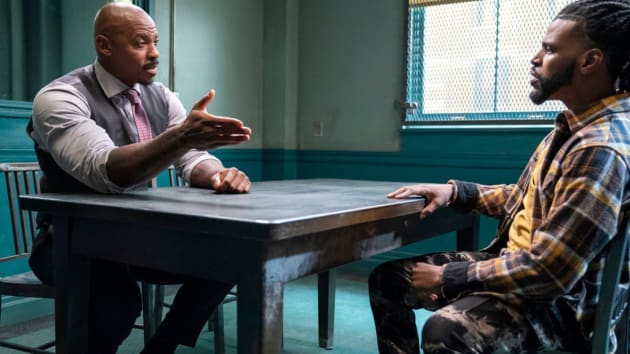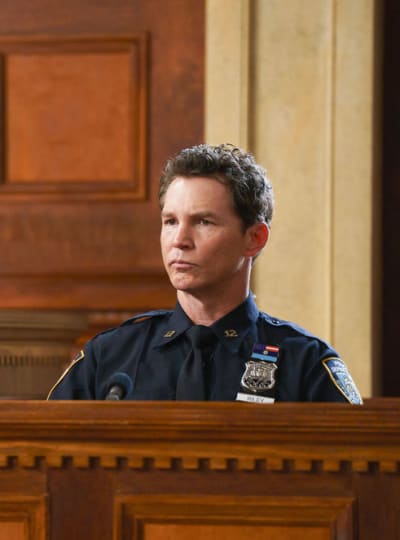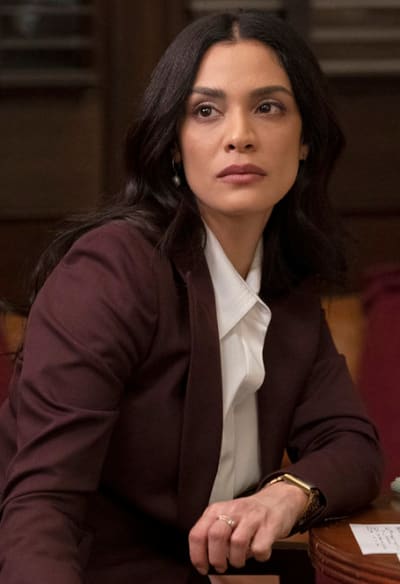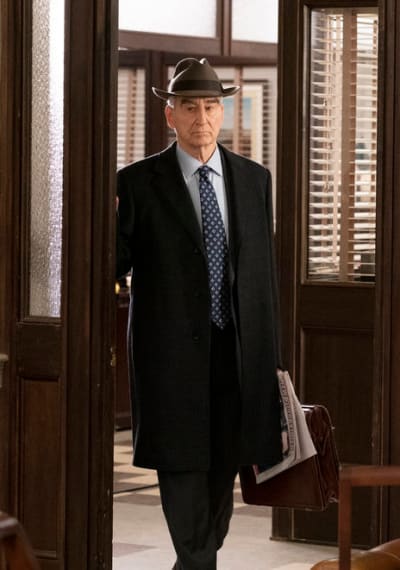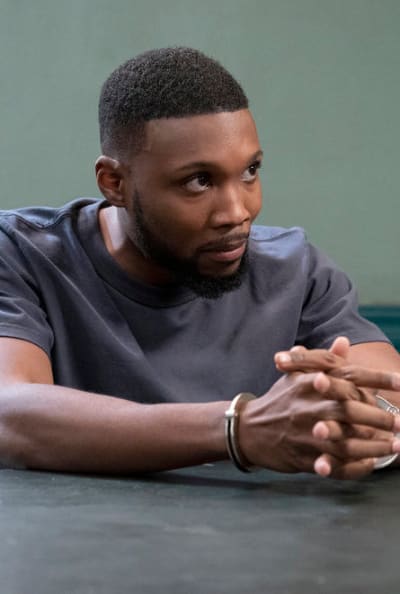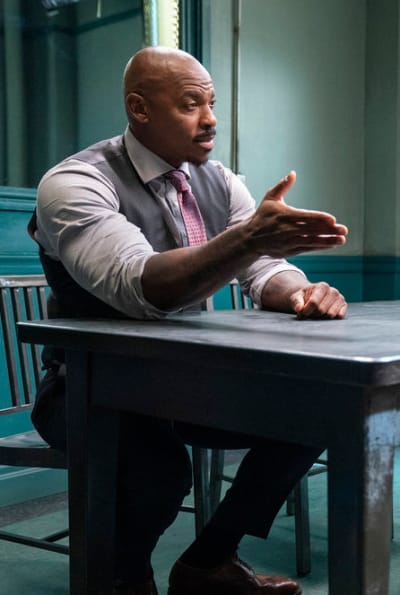What makes a hero?
On Law & Order Season 22 Episode 14, two men disappointed others by hiding during a shooting at a nightclub. One was a rapper who got in trouble for destroying evidence, and the other was a cop who took his own life after the press got ahold of the story.
The second half of the hour focused on the cop, while the rapper’s similar behavior seemed more like a plot point. Still, this story raised many questions about heroism, cop culture, and mental health.
The case would have been straightforward if it didn’t hinge on Officer Riley’s reluctance to admit he watched the shooter go past him and did nothing.
I wasn’t sure why Nolan insisted he needed proof that Bishop Bell was in the club to make his case. Yes, the evidence was circumstantial, but he could have told a compelling story to the jury using it.
That rage-filled letter provided more than enough evidence that Bishop felt murderous rage toward Hannah, and the 67 declined calls were evidence of obsession. He was spotted on camera six blocks away soon after the shooting, and an eyewitness remembered him wearing the same blue knit cap during the attack.
Was it a perfect case? No. But Nolan could have made it even without Riley’s testimony if he had to.
Riley was defensive about freezing up, and with good reason. He could have caught the shooter on the spot if he’d acted, and he knew people would see him as a coward.
He seemed pretty strong on the stand, though it annoyed me that Nolan didn’t renew his objection the second time the defense attorney called Riley a coward since the judge had already barred the defense attorney from saying it.
But as soon as McCoy brought in that ugly headline, I knew that Riley would kill himself.
Many factors were in play during this part of the story.
First, many men suffer in silence regarding depression and other mental illnesses because they don’t want to be seen as weak or cowardly.
It’s doubly hard for cops, who face public disapproval and pressure to be heroes all the time and may risk their badge if they admit they need help with a mental health issue.
Riley was in a challenging position. The positive spin he put on his behavior was that he was waiting for backup, which was understandable. Lying to the detectives was less excusable than his freezing up.
Nolan: There’s nothing you could have done to stop that young woman’s death. Three minutes or six minutes, it wouldn’t have made a difference.
Riley: I know that. It’s not that –
Nolan: It’s not that simple, is that what you were going to say? You know there is no law that requires police officers to be heroic.
As Nolan said, Riley arrived too late to help Hannah, so his choice not to engage didn’t make a difference to the tragic events. But the police could have caught the shooter more easily and had a stronger case if Riley had told the detectives what he knew instead of trying to cover up his behavior.
Riley might have suffered PTSD after being on the force as long as he had, which could have explained his freezing up. He also felt pressure to be that heroic cop that Nolan said he didn’t have to be.
His family was all cops, but he didn’t have the support that the Reagan family has for each other on Blue Bloods.
Was that a relative who punched Nolan or a random cop? Either way, that person wasn’t there for Riley while he was alive.
It’s hard not to judge cops who don’t act. f this was an active shooting rather than the shooter trying to get away after the fact, Riley would have been responsible for loss of life, which would have been inexcusable.
This case was far less clear-cut than that. Riley didn’t stop the shooter from running away, but he wasn’t responsible for anyone’s death, either.
His mental health issues probably didn’t start when he decided to kill himself. Something caused him to freeze. Whether it was pressure to be the perfect cop, fear of being accused of racism if things went bad while chasing a Black suspect, or some other problem, he had issues that hadn’t been addressed.
Although it wasn’t mentioned at all, this scenario also illustrated the effect irresponsible headlines have on people.
The New York Ledger is used on Law & Order and Blue Bloods as a fictional tabloid that is little better than the National Enquirer. But its salacious headlines don’t just sell papers — they affect real people. And in this case, that headline contributed to Riley’s death.
It was also interesting that Riley and King Matisse did the same thing. They ran and hid and then tried to cover it up.
King Matisse even went as far as making up a story about confronting the shooter and paying someone to erase the video footage.
As an aside, it’s hard to believe that the tech experts at the police department couldn’t recover footage that had been deleted from the cloud, but here we are.
Matisse got in trouble, and both men became fallen heroes. In Matisse’s case, refusing to cooperate with the cops might have given him street cred to balance out his fans’ disappointment in his refusal to protect his girlfriend.
Mr. Grey: She just went out to have a good time. What is this world coming to?
Cosgrove: From what I understand, she saved a young man’s life. It may not mean much to you now, but your daughter died a hero.
I didn’t like that a mass shooting turned out to be a run-of-the-mill stalker story. These shootings have sadly become all too common, and I wish Law & Order had dived deep into why they happen.
What did you think, Law & Order fanatics? Hit the big, blue SHOW COMMENTS button and let us know. And don’t forget that you can watch Law & Order online on TV Fanatic.
Law & Order airs on NBC on Thursdays at 8 PM EST / PST.
Jack Ori is a senior staff writer for TV Fanatic. His debut young adult novel, Reinventing Hannah, is available on Amazon. Follow him on Twitter.
